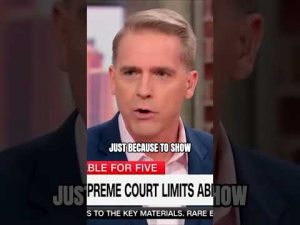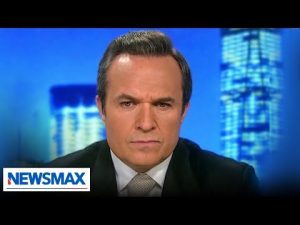As the clock ticks down toward a potential government shutdown at midnight on Friday, the air in Washington, D.C., is thick with tension. The conversation has shifted into high gear, with former congressmen Jack Kingston and Bob McKeon weighing in on the issue during a recent news segment. They delved into the intricacies of the political maneuvering happening behind the scenes, bringing some humor and insight to what’s becoming a familiar political drama.
Jack Kingston pointed out the surprising emergence of John Fetterman as a sort of bridge-builder in this political mess. Just a month ago, Fetterman took a trip to Mar-a-Lago, which raised eyebrows and drew criticism from his peers. However, he’s maintained that his primary concern is achieving results for his home state of Pennsylvania and the country at large. Kingston suggested that Fetterman’s willingness to consider working across the aisle could encourage other Democrats to follow suit. After all, keeping the government operational isn’t just a matter of politics; it’s about keeping essential services running and ensuring that soldiers receive their paychecks.
Conversely, Bob McKeon stirred the pot by highlighting the glaring hypocrisy of the Democrats as they bemoan potential job losses while simultaneously threatening to shut down the government. He argued that this continuing resolution (often referred to as a CR) simply continues previous spending levels without introducing a new budget. It’s a peculiar cycle where the very budget they criticize is one that they themselves upheld. McKeon painted a vivid picture of Washington’s political landscape, showing how often the game is played purely for political gain.
The countdown adds urgency to discussions about whether Senate Democrats will rally enough votes to avert a shutdown. Kingston speculated that several key Democrats, including Mark Kelly and Tim Kaine, might lean toward keeping the government open. He observed that the prospect of facing tough re-election battles could push other Democrats, such as Jon Ossoff and Raphael Warnock, to align with Fetterman’s more centrist approach. As he put it, sometimes politicians have to prioritize their political survival over party lines.
Amidst all the back-and-forth, McKeon took a moment to reflect on the historical context of government shutdowns. He noted that Republicans have often been cast as the villains in these scenarios, blamed for financial impasses. Yet he suggested that media shifts have changed the game. With the rise of alternative news outlets, more Americans are beginning to understand the nuances and stakes involved. They’re seeing through the theatrics, which he believes may lead to a shift in public perception about who’s really to blame.
As the deadline looms closer, the stakes have never been higher. With potential job losses and the risk of halting critical government services, Washington’s leaders face immense pressure. Spectators from both sides of the aisle are tuning in to see if Fetterman and his fellow Democrats will ultimately choose to support a solution that keeps the government functioning. Will they pivot from their stance, or will they remain steadfast against the Republicans’ proposals? Only time will tell, but one thing’s for sure: political drama in D.C. is anything but dull.







